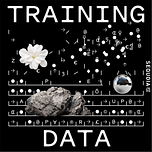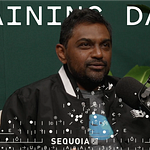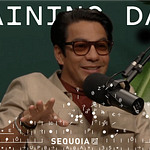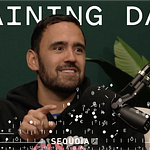Post methodology: Claude 4.0 via custom Dust assistant @TDep-SubstackPost with the system prompt: Please read the text of the podcast transcript in the prompt and write a short post that summarizes the main points. Please make the post as concise as possible and avoid academic language or footnotes. Refer to podcast guests by their first names after the initial mention. Light editing and reformatting for the Substack editor.John Sarihan and Ryan Daniels are taking a contrarian approach to legal tech. Instead of building software for lawyers, they built Crosby—an AI-first law firm that does the work itself. Their insight? You can't truly automate what you don't deeply understand.
Most legal tech companies build tools for existing law firms. John and Ryan flipped this model entirely. By structuring as a law firm, they get direct feedback loops that traditional software companies miss. When your lawyers sit next to your engineers—literally alternating desks—you capture insights that no eval can provide.
The key insight: legal services have always been about human capital, like a VC firm investing in people. But now that substantial legal work can be delegated to AI, the traditional partnership model breaks down. Law firms can't invest in speculative technology because they can't sell equity or take the right kinds of risks.
The Power of Doing the Work
Crosby focuses on contract automation—NDAs, MSAs, and DPAs that every B2B company negotiates constantly. By actually handling these negotiations, they've discovered nuances that pure software approaches miss. For example, "commercially reasonable" versus "reasonable" look identical in embedding space but have vastly different legal implications.
Their approach layers AI throughout the process: AI summarizes contracts, explains changes to counterparties, and routes work like a paralegal. But lawyers remain in the loop for quality control and complex judgment calls. This hybrid model lets them turn around contracts in under an hour while maintaining the oversight clients need.
Building in New York isn't incidental. Ryan and John tap into a unique ecosystem of domain expertise across finance, healthcare, and law, combined with a founder-first culture emerging from companies like Ramp. They come to SF to dream, then return to New York to build—distilling cutting-edge AI concepts into practical solutions.
Rethinking Pricing and Incentives
They've abandoned billable hours entirely, pricing per document instead. This forces them to predict negotiation complexity upfront—how many rounds will this take? This constraint drives innovation in ways hourly billing never could.
Their north star metric is TTAT (total turnaround time)—the complete time from contract receipt to final signature. They also track HuRT (human review time) to measure automation progress. These playful acronyms reflect a culture that prizes efficiency while maintaining quality guardrails.
Lessons for Founders
Crosby's model offers broader lessons for vertical AI companies. When you're disrupting knowledge work, consider whether building the service gives you advantages over building the software. The tight feedback loops, real customer data, and deep domain understanding can create moats that pure software plays can't match.
Their vision extends beyond contract automation to a "Robinhood for legal services"—using AI leverage to make high-quality legal work accessible to everyone, not just Fortune 500 companies. As Ryan puts it, this could be the golden age for what lawyers can accomplish when technology amplifies their expertise rather than replacing it.
The lesson for founders in any domain: sometimes the best way to automate an industry is to first master doing the work yourself.
Hosted by Josephine Chen and Sonya Huang, Sequoia Capital
Mentioned in this episode:
Atrium: Failed legal startup founded by Twitch co-founder Justin Kan
Clearspire: A pioneering but also failed legal tech firm founded in 2008 that created the Coral software platform for law firms
Data processing agreement (DPA): GDPR-mandated contract between controllers and processors. Crosby handles DPAs as part of B2B contracting, along with NDAs and MSAs.
Credence good: Economic term for services whose quality is hard to judge even after consumption. Used to explain why legal buyers value lawyers-in-the-loop and malpractice coverage.









